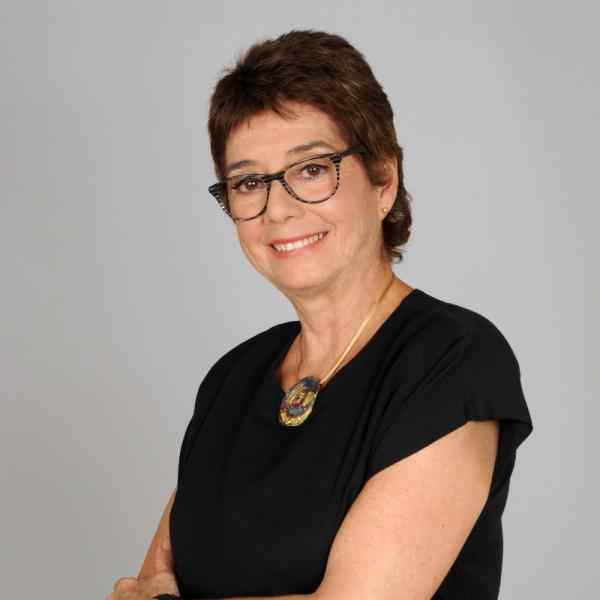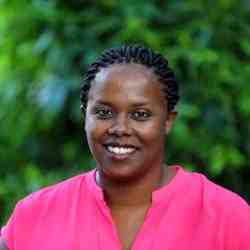Introduction
Lidiethe Madden Arias has established a demonstration farm and agricultural training center to improve the organization and efficiency of rural production, thereby addressing the gap in income and living standards between peasant families and urban dwellers.
The New Idea
Lidiethe Madden Arias is challenging farmers to take advantage of existing opportunities for commercialization of their produce. She understands that rural improvement strategies must move beyond the status quo of crop enhancement and land management training, to focus instead on effective agricultural business development. To that end, she has designed an approach with two components. The first is a demonstration farm, set up to promote alternative production processes, new uses of natural resources, and marketing techniques. The second is a training and technology transfer center. Through technical assistance, credit, and access to the Costa Rican and international markets, the center helps peasant families to organize themselves and produce outputs that are marketable, of reasonable quality, and ecologically sustainable. Lidiethe has established the demonstration farm and proven the value of the model, identified the reasons for its success, systemized the project for later replication, and increased participation by the peasants benefiting from the farm. Lidiethe has a lively and participatory style of instruction, which she has organized into a set of educational modules. She helps men and women develop new methods of production and management, based on the training and their own experience. She also promotes the values of solidarity, commitment, self-management, and innovation, which are fundamental to the success of community organizations and the coordination of these organizations with their environment.
The Problem
The central problem facing peasant farmers is a low level of organization, which results in poor management of productive activities, reduced earnings, and a consequently lower quality of life. Simply put, peasant farmers do not gain access to the markets which would most benefit their activities. Rural regions of Costa Rica are organized into 48 cantons which occupy 85% of the country's land area. In these areas live 1.9 million people, or slightly over half of Costa Rica's population. The lack of economic dynamism in the rural sector contributes to its relative poverty. In terms of its contribution to the national economy, agricultural exports represented 73% of total exports in 1997; tourism was the second largest source of foreign exchange.
Environmental services have been growing rapidly because Costa Rica has significant competitive advantages in areas like bio-diversity, forestry development, and the production of renewable energy. Although much of Costa Rica's wealth comes from the countryside, the lack of attention to rural areas has left a quarter of the population in extreme poverty. Most of the housing deficit is concentrated in rural areas, and unemployment is rising faster than in urban areas. The purchasing power of the rural population is 25% lower that urban dwellers, and there are considerable differences in access to healthcare and education.
The Strategy
Lidiethe is addressing these problems through her organization, by training farmers to gain access to control of resources, so as to provide them with viable alternatives for confronting the social and economic inequalities of her country. In the nine years since she created the ANDAR foundation, Lidiethe has generated a number of approaches to the problem of rural poverty. Initially she directed her efforts towards the implementation of a Program of Participatory Education, then introduced rural credit schemes. She has also concerned herself with determination of adequate prices, quality standards, and the commercialization of agricultural products nationwide. More recently, Lidiethe has responded to peasant organizations' demands for access to information by launching initiatives to bring them computer, fax, and Internet technologies, tools which help them understand and utilize international markets.
As an important part of her strategy, Lidiethe has nurtured the creation of self-managed businesses, in the hope of integrating them into an organized rural platform for the mobilization of credit resources, marketing of their products, and alliances with other civil society organizations. This infrastructure for development of the rural community is supported by the Center for Training and Technology Transfer of ANDAR, offering assistance in areas such as sustainable forestry, food security, solar energy, and harvest management, among others.
For the next three years Lidiethe plans to continue her credit operations, financing rural businesses of medicinal plants, processing palmito trees (foodstuff), the organization of warehouses, and the commercialization of export crops (such as yams, yucca, ginger, bananas, and plantains). She also wants to expand her training center, and is working to promote sister organizations in Central America. In five to ten years' time, she hopes to consolidate the rural businesses and her model of development. Lidiethe's strategy aims for a real, permanent change in the way rural businesses relate to the market.
The Person
Throughout her life, many influences have pushed Lidiethe to develop social projects to improve the lives of poor peasant families. Her father, an immigrant from New Zealand, loved to travel and helped kindle her interest in the peasants of the Costa Rican countryside. Her grandmother, who raised four children while working as a seamstress in the homes of wealthy people, showed Lidiethe that rich and poor could benefit from interaction with one another.
After studying to be a teacher for three years with many rural students, she learned to appreciate the richness and culture of peasant groups. Her career in psychology helped her to visualize organizational strategies that led to the model of development embodied in ANDAR. Lidiethe's knowledge of agriculture comes from 15 years of work in this sector, both in the Institute for Agricultural Development and in her own organization.




